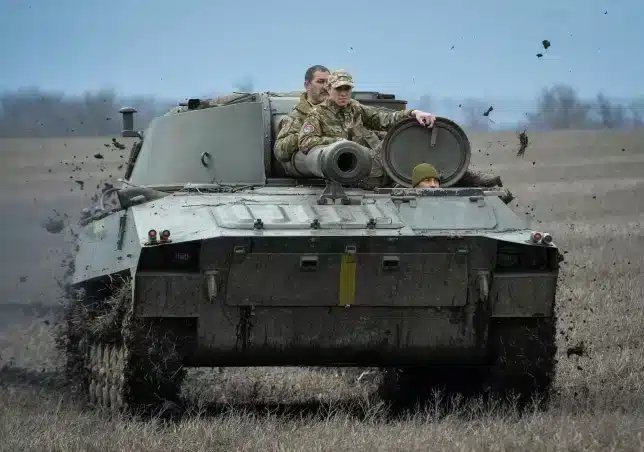According to US Secretary of State Antony Blinken, Ukraine is about to start its long-awaited counteroffensive against Russia.
Following months of rumours and false information concerning the nature of Ukraine’s next move, Mr. Blinken’s remarks represent the most credible assessment of the situation on the front lines to date.
In an interview with German media outlet Funke, Mr. Blinken stated, “A counteroffensive that will likely commence in the coming weeks.”
During the interview, Mr Blinken stated that there are ‘two goals for Ukraine’s many friends and partners’ in the current conflict with Russia.
The first aim is helping Kiev win back territories, which means assisting in a counteroffensive, the diplomat argued.
The second goal, according to the secretary of state, is supporting Ukraine in building up its medium- and long-term capacities to deter Russia and to allow Kiev to defend itself from any future attack.
Addressing calls for Ukraine to commence peace talks with Russia, Blinken said: ’For some, the idea of a ceasefire may seem tempting – and I understand that.
‘But if this leads to the practical ratification by Russia of the seizure of significant Ukrainian territories, this will not be a just and lasting peace.
‘Russia could regroup its troops and attack again after a certain time. Russia must reach a point where it is ready to enter into constructive negotiations. The goal must be a just and lasting peace.’
Ukraine has spent much of the winter ensuring the essential preconditions for a successful counter-offensive are in place, including the completion of training and integration of new units, degrading the Russian rear, a resilient logistics chain and real-time intelligence.
Kyiv is currently setting up several new corps, each of which would comprise several thousand troops.
‘Included in these will not only be new Western tanks, infantry fighting vehicles, wheeled vehicles and other equipment but also a lot of engineering equipment,’ Mick Ryan, formerly a general in the Australian army, told CNN.
After months of preparation, these units may nearly be ready.
It is thought the upcoming offensive this spring will see a ‘decisive battle’ which may determine the eventual outcome of the war.
But Ukrainian Foreign Minister Dmitry Kuleba pointed out last week that Kiev is concerned that the planned advance would not result in Russia being ‘100%’ pushed out of the territories that Ukraine intends to reclaim.
He urged Kiev’s Western backers not to treat the counteroffensive as a make-or-break moment, and called on them to maintain their support regardless of its outcome.
His comments follow news that secret Nato plans for the upcoming offensive had been leaked to Russia, although these plans have been dismissed as disinformation.
A Telegram channel linked closely to Russia’s FSB security services had boasted on Friday of a ‘First breakthrough for Russian intelligence’ when it published photos of the leaked documents.
It said that the five documents marked as ‘Top secret’ gave away valuable intelligence which exposed the expected supply of weapons, the number of troops and the consumption of ammunition,’ it said.
But closer inspection of the documents revealed they had been doctored, with certain figures changed to appear more favoured to Russia.
But the plans were rubbished by Mikhailo Podolyak, an adviser to Volodymyr Zelensky, who said: ‘Since the USSR’s collapse Russian intelligence has degraded to the extent that the only way to redeem itself after “Salisbury” and “three-day plans” is to photoshop and fake leaks.’
Mr Podolyak told Russia they ‘will see the real plans on the ground soon’, although the Pentagon appears to be taking the leaks seriously.
‘We are aware of the reports of social media posts and the department is reviewing the matter,’ said Sabrina Singh, the deputy press secretary at the Pentagon.
Speculation on the location of the counterattack has focused most recently on the occupied town of Melitopol, in the south of the country, which was captured by Russia early in the war.
The city grants access to strategically important road and railway hubs which connect to the Zaporizhzhya region and other parts of Donbas and Crimea.
Former Russian President Dmitry Medvedev has insisted that Ukrainian talk of a large-scale spring offensive that would also target Crimea is merely ‘propaganda.’
However, he did warn that if the peninsula came under attack, Russia would be justified in using ‘all means of protection,’ including nuclear weapons.

